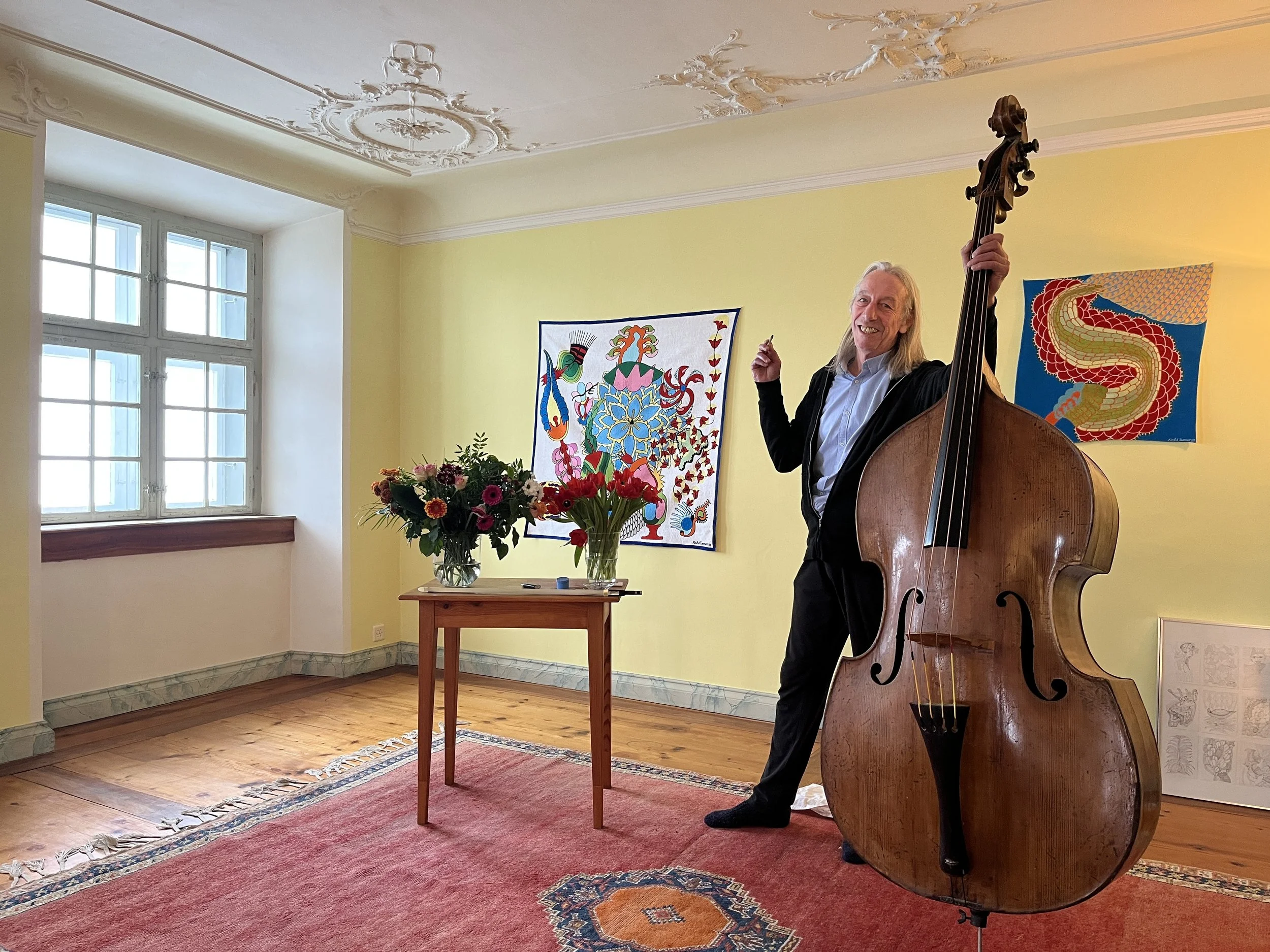In 1972, by chance, Ficht Tanner discovered his first double bass at a colleague’s workshop and immediately felt it was the beginning of “a lifelong love story.” After early collaborations with chansonniers Guy Magey and Adrien Naef, he reunited in 1979 with Töbi Tobler, who had devoted himself to the hackbrett, the hammered string instrument of Appenzell.
At the end of 1981, Ficht Tanner and Töbi Tobler founded Appenzeller Space Schöttl, a band that wove together folk, rock, and jazz improvisation while carrying their two traditional instruments into the realm of experimental performance:
“We played in total freedom, with anarchic sounds and nonconformist musical forms”.
Touring Europe through the 1980s and 1990s with up to 200 concerts a year, they collaborated with musicians such as Bernd Schlott, Hans Kegel, Paul Giger, Walter Keller-Walter, Alain Croubalian, or even the Viennese violin-and-guitar duo Fritz & Fritz and the eccentric English band Accordions Go Crazy. Their performances, often seamless journeys through jazz, rock, swing, Balkan and Appenzell folk, pop, and meditative sounds, relied on spontaneity, atmosphere, and interaction with the audience.
Their first, self-titled vinyl record, Appenzeller Space Schöttl (1982), was captured in a single night beneath a full moon, its cover designed by Ficht as a visual echo of the music’s levitating spirit. More than a decade later, the duo released Herbstimprovisationen (1995), on CD and cassette, featuring a blue background cover illustrated with a colorful patchwork by Therese Hächler. The album featured, among others, their emblematic folk-psychedelic improvisations “G-Bouquet,” and “E-Rock”, pieces they had endlessly reshaped in performance.
Their sound drew inspiration from Pink Floyd, Soft Machine, and klezmer traditions, yet always resisted imitation, seeking instead a language entirely their own—born from freedom, encounter, and the refusal of idols. Ficht’s 1970s drawing Xept in law, echoing The Dark Side of the Moon, symbolized this quest: replacing the rainbow with his primary colors red, blue, and yellow. As he later explained, the phrase evolved into “Accept in law” – a mantra of following his own path.
Today, Ficht still spends hours improvising on his double bass, accompanied by his singular voice.

























